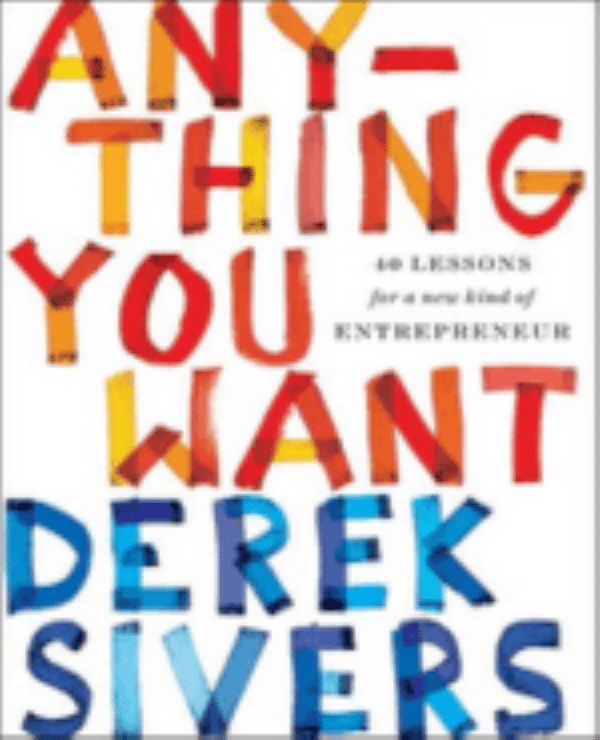After I started reading a lot of non-fiction books, I came across Derek Sivers’ book reviews page a few times. I liked his reviews very much, but did not pay any attention to his articles or books. A few months ago, I purchased his book Anything You Want, which chronicles his journey of how he started, grew, and sold his company, CD Baby. This book was like no other I had read. It was short – it spanned all of 77 pages!
It had surprisingly simple advice. For example, When choosing how to price selling CDs online, Sivers confesses “Like most people, I had no idea what to charge for my service. So I went to the record store in Woodstock, where they had some local musicians’ CDs on the counter. I asked the woman at the store, ‘How does it work if I sell my CD here?’. She said, ‘You set the selling price at whatever you want. We keep a flat $4 cut. And we pay you every week.’ So I went home and wrote on my new cdbaby.com website, ‘You set the selling price at whatever you want. We keep a flat $4 cut. And we pay you every week.’ I figured if it worked for her, it was fine for me.”
That was his business plan! So simple! A billboard message once read “Simplicity is the ultimate form of sophistication”. Sivers’ approach is in accordance with this tenet, simplicity is at the essence of not just the message that he espouses, but his entire writing screams ‘simplicity’. Sivers carefully removed every extraneous word from the book, and distilled it into a concentrated yet delectable essence, retaining only what is necessary.
Truly great businesses are customer-centric. Amazon is the example that first comes to people’s mind when customer-centric businesses are mentioned. Sivers emphasizes this in this book. “I didn’t have to please anybody but my customers and myself. No effort spent on anything but my customers”, he says about being glad about not having investors in his company. “Never forget that absolutely everything you do is for your customers. Make every decision — even decisions about whether to expand the business, raise money, or promote someone — according to what’s best for your customers.”, he continues with this train of thought. The best was yet to come:
At a conference in Los Angeles, someone in the audience asked me, “What if every musician just set up their own store on their own website? Since that’d be the death of CD Baby, how do you plan to stop that?”
I said, “Honestly, I don’t care about CD Baby. I only care about the musicians. If some day, musicians don’t need CD Baby anymore, that’s great! I’ll just shut it down and get back to making music.”
Sivers said that the person asking the question was shocked – he had never heard a business owner say that he didn’t care about the survival of the company. It was not just the person asking the question – I too was astounded – and impressed. Sivers goes on to say that this is but common sense, and that the #1 rule of providing good service is
It’s all about them, not you.
The book is filled with nuggets of unconventional advice which made me think to myself “That makes sense – what a great way to think about things! I am officially a Derek Sivers fan, and wholeheartedly recommend this book.
Image Credit: Derek Sivers









Comments & Discussion
10 COMMENTS
Please login to read members' comments and participate in the discussion.